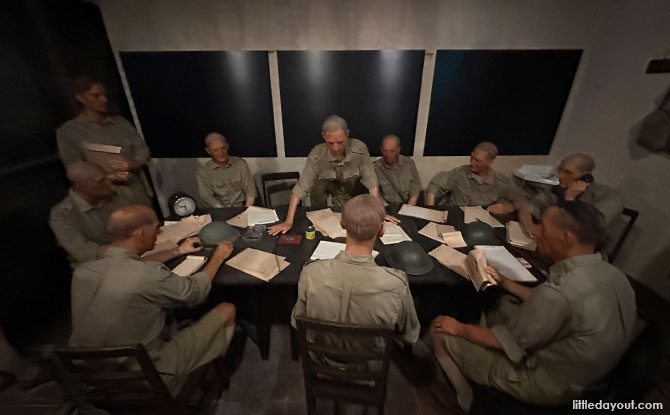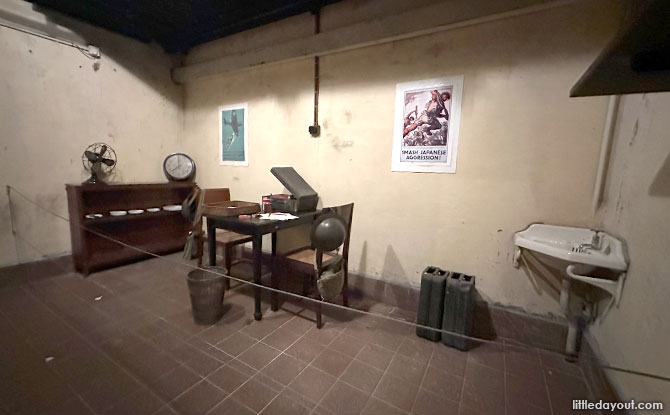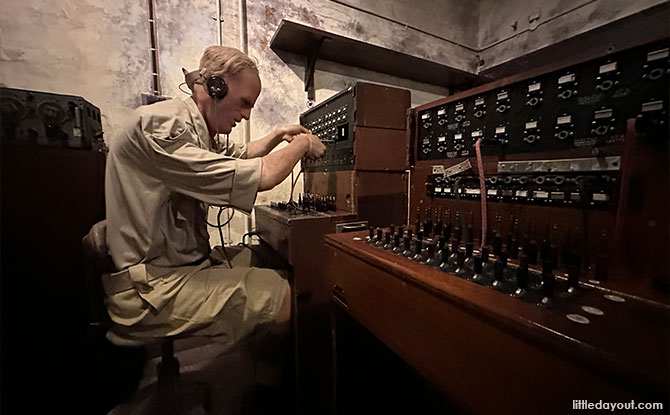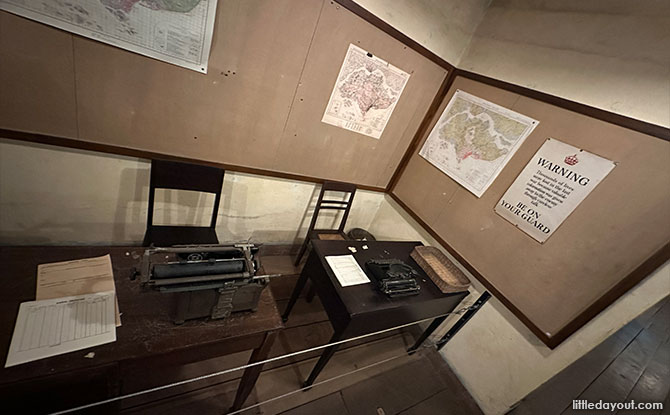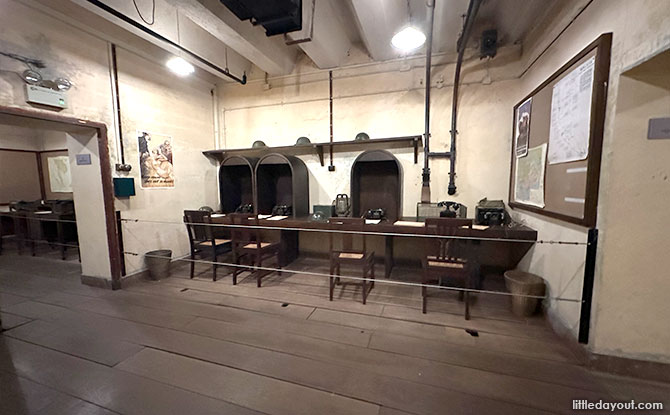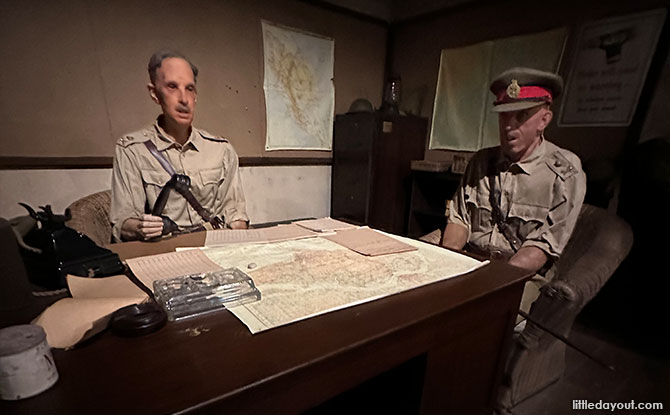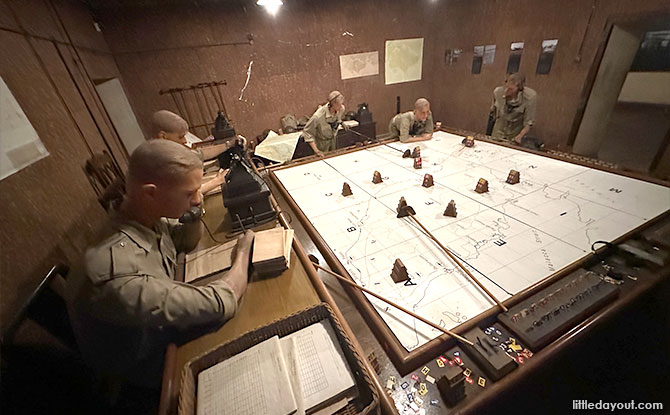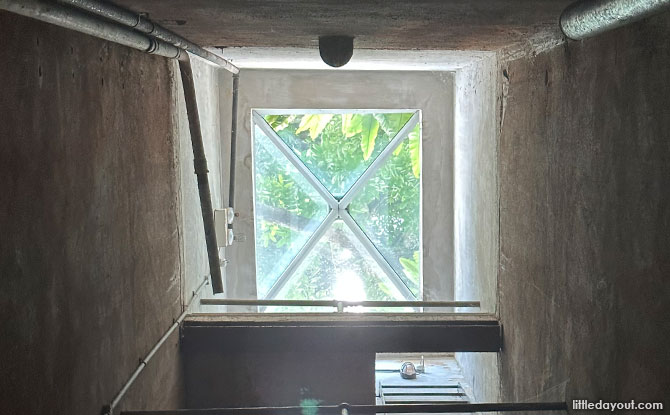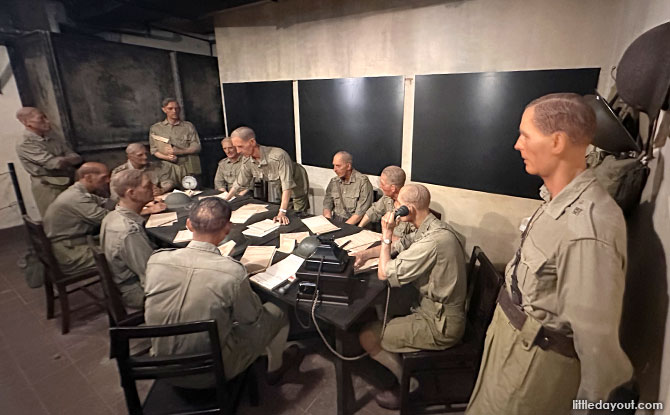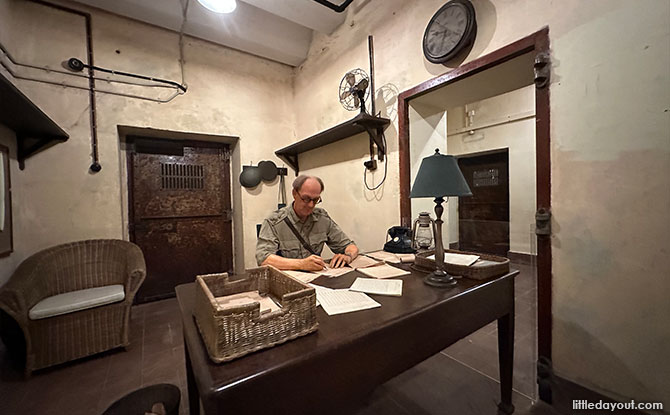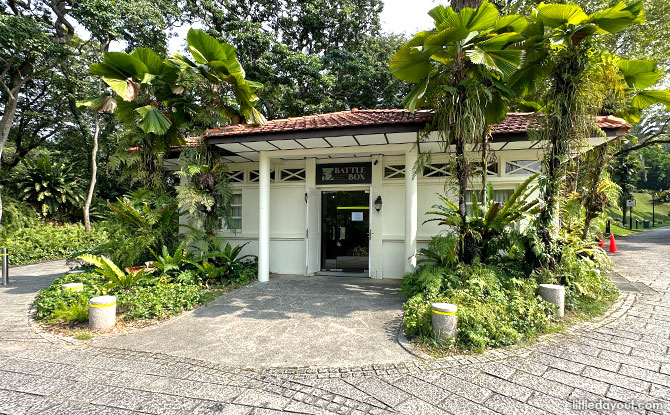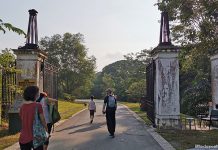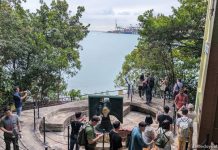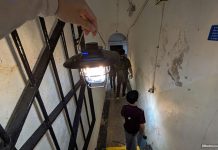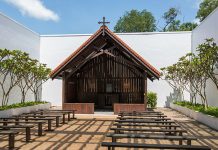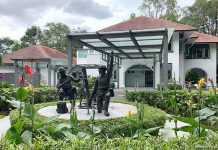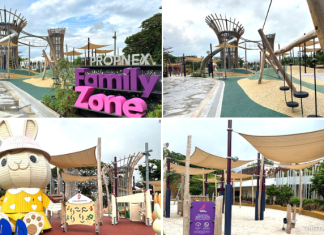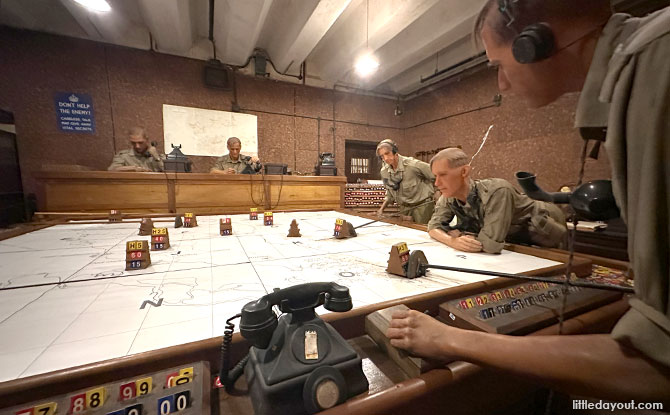
Hidden in secret tunnels deep under Fort Canning, top military commanders convene in what is now known as The BattleBox to deliberate the fate of hundreds of thousands.
In just 70 days, during the Second World War, Japanese forces had made their way down the Malayan Peninsular, crossed over to Singapore and were nibbling at the fringes of the city.
BattleBox at Fort Canning Hill: An Important Piece of History
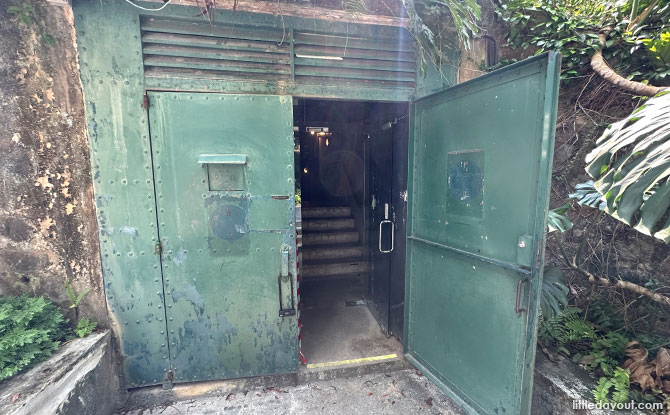
The bunker known as the BattleBox at Fort Canning Park has most reopened to the public in October 2023 and it is now open for free to visitors.
FREE FOR LITTLE DAY OUT PARENTS: Sign Up for a Free Trial with ACT 3 Academy to Find Out If Drama Classes are Right for Your Child
3 Recycling Adventures: Fun Ideas For Kids & Families
1:1 & Small Group English Lessons: How to Get Personalised, English Help
It is run by non-profit arts and culture organisation Global Cultural Alliance.
Paying a visit to the BattleBox is like stepping back in time to the eve of the fall of Singapore. The command bunker now serves as a museum and is one of our favourites, providing a look back into the past and the fateful events that led to the fall of Singapore.
15 Minutes That Impacted Singapore
Huddled in a bunker under Fort Canning Hill, British commanders led by Lieutenant General Percival had to decide whether to counterattack or surrender.
Percival was under orders to defend Singapore but dissent was rife amongst the other officers in the room.
It took just 15 minutes for the meeting to decide to capitulate Singapore to the Japanese and change the course of history.
During the Japanese occupation, the tunnels were used by the Japanese military. Japanese graffiti has been found
After the war, the tunnels were sealed off and lost to history until “rediscovered” in 1988.
Now that the BattleBox is reopened to the public, it providing an authentic way to experience the grim events that shaped Singapore and the region.
Pay it a visit to go back to the Battle for Singapore in 1942.
Enter the BattleBox

From the entrance of the BattleBox, a flight of stairs leads to a long corridor. Off this corridor are the twenty-something rooms making up this underground command complex.
The first room to to the right is the Orderlies Room. This is where men working in The BattleBox would be able to take a break.
Adjacent to that is the Telephone Exchange where there is a mannequin of an operator at work.
Across the corridor, the Cipher Office is where messages were coded and decoded before being dispatched.
Command Centre
As the command bunker, the BattleBox was at the heart of all communications with the troops in the field. Communication rooms allowed commanders bunkered in the Battlebox to find out what was happening on the battlefield, and to pass out orders to the units in the field.
The next series of rooms take you deeper into the BattleBox.
Fortress Command was occupied by the Commander of Singapore Fortress, Major-General F. Keith Simmons. This was where all the reports would have come in to give Percival and Simmons an overview of the battle.
Adjacent is the Fortress Plotting Room, visitors get to see how plotters kept track of invading aircraft and coordinated the allied response to them.
Other rooms at the BattleBox that you can explore include the Engine Room where the bunker’s electricity generator was once housed and Air Filtration Plant.
There is also a secret escape hatch for emergency evacuations. This leads up to the field next to the Fort Gate.
First-hand View of History
This segues into the Surrender Conference Room where the decision was taken to surrender Singapore to the Japanese. Here, a diorama showing the men who took the decision.
There are also descriptive panels on the wall that provide visitors with a better understanding of what led Percival to eventually make the infamous trip from the Fort Canning to Upper Bukit Timah and surrender Singapore to the Japanese.
Reliving History at the BattleBox, Fort Canning Park
The BattleBox is an important piece of Singapore’s history, and dare we also say Britain’s too.
Even though it used for just four days (Percival shifted into the bunker on 11 February from the neighbouring building – now Hotel Fort Canning), the events that played out in the Battlebox were of utmost significance. It set the stage for Singapore’s occupation by the Japanese during World War II which also brought along with it immense suffering for the local population.
A visit to Battlebox at Fort Canning Park will allow visitors to gain an appreciation of Singapore’s past, remember the sacrifices of those who lived through the Second World War and walk away with greater fortitude for the future.
Visiting the BattleBox at Fort Canning Park
While it is free to visit the BattleBox, you will need to register first at the office close to the roundabout. Nonetheless, you are highly encouraged to reserve your tickets in advance as there may be limited free entry slots.
If you wish to get a more in-depth understanding of the BattleBox, you can pay for the enhanced experience. This includes an audio tour that will be played on your own personal device. The audio tour guides you through the subterranean chambers, with easy-to-understand historical facts about the pivotal events that led to the British surrender. It is recommended to make use of a set of earphones with your device to listen to this audio tour.
It also includes entry into the two two 270° projection rooms and souvenir anaglyph glasses. The costs for the Enhanced Experience costs $15 for Singaporean and PR adults and $10 for Singaporean and PR adults children. The rates for non-locals is $20 and $15 for adults and children respectively.
Children aged 4 years and below enter for free and no booking is required. However, take note that entry will not include an audio guide. Children aged 12 years and below must be accompanied by an adult.
The BattleBox
Address: 2 Cox Terrace, Singapore 179622 (Fort Canning Park)
Opening hours: Wednesdays to Sundays (including Public Holidays), 10 am to 5 pm (Last Entry 5 pm)
Website: The BattleBox
If you enjoyed this story, we think that you will also enjoy this one about museums for kids in Singapore or this other one on WWII museums in Singapore.





